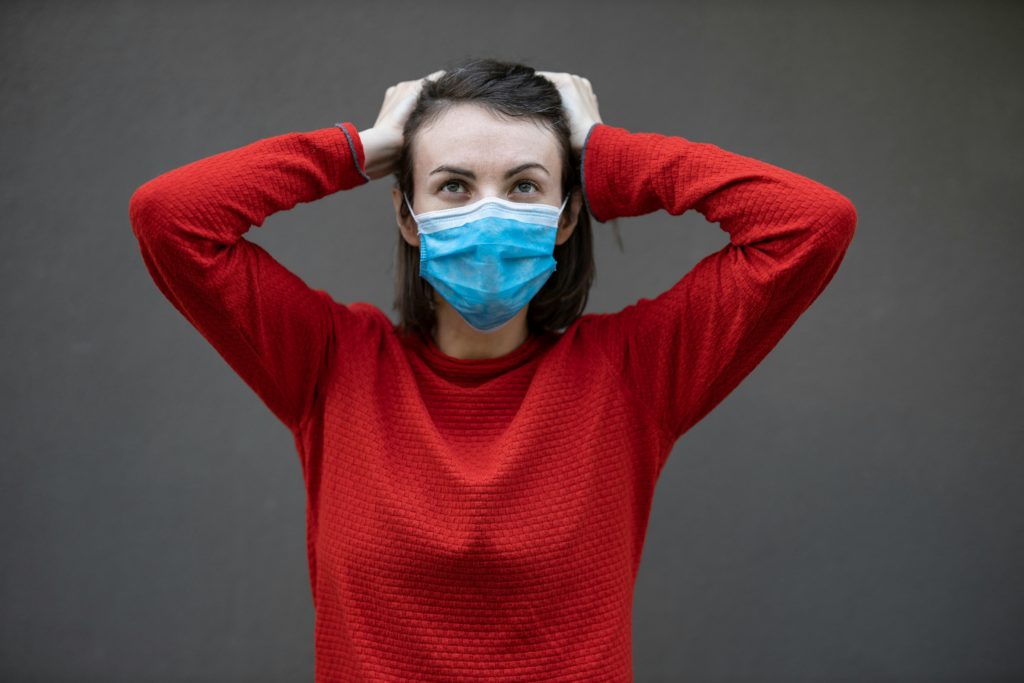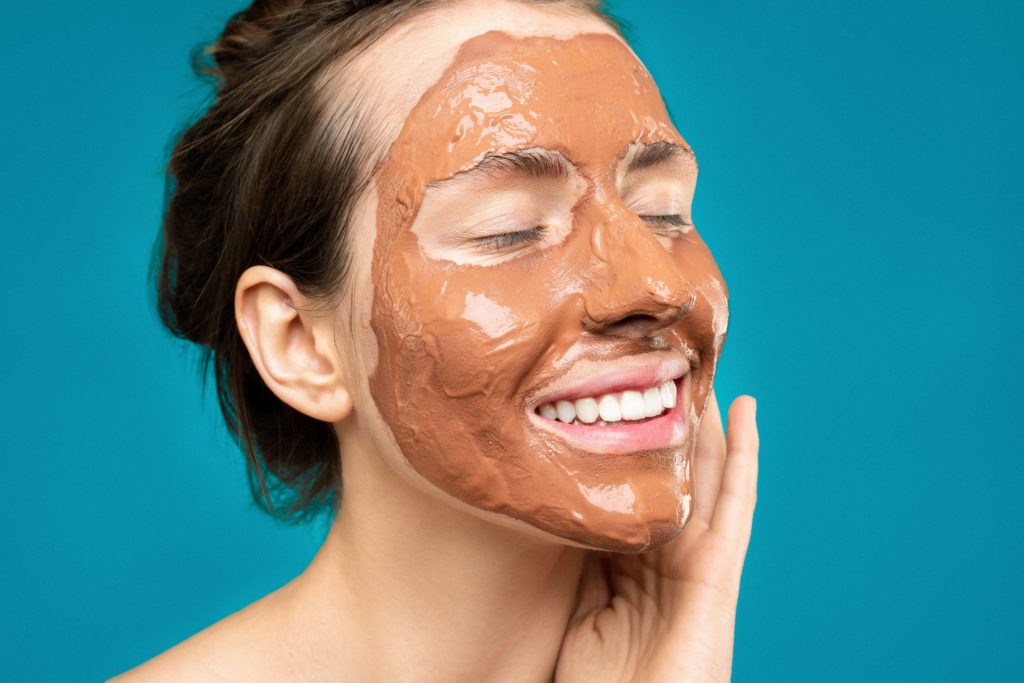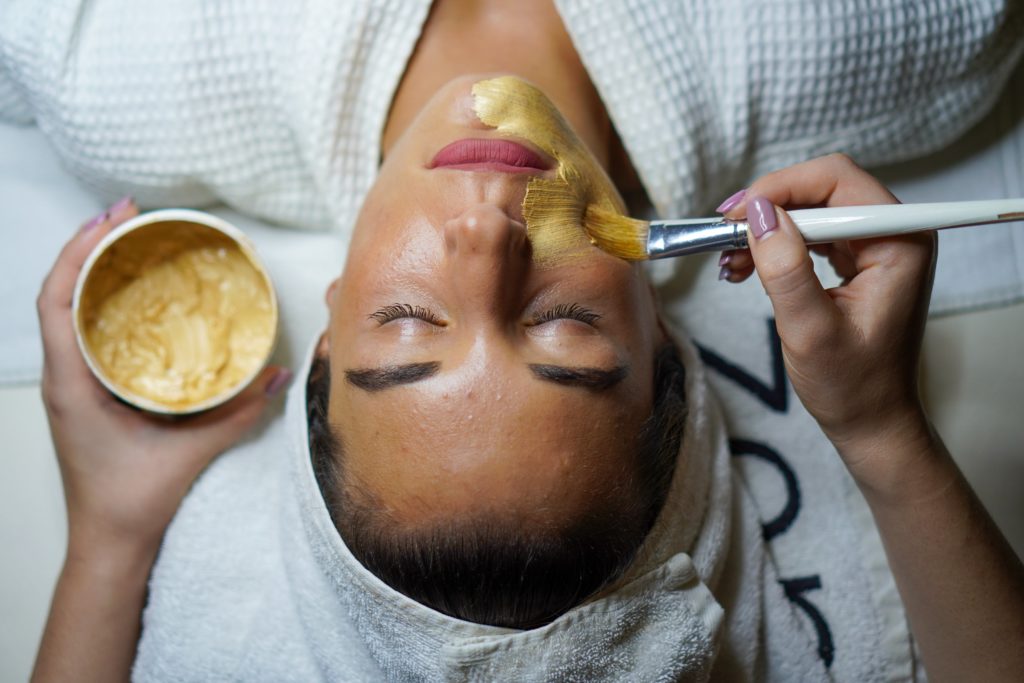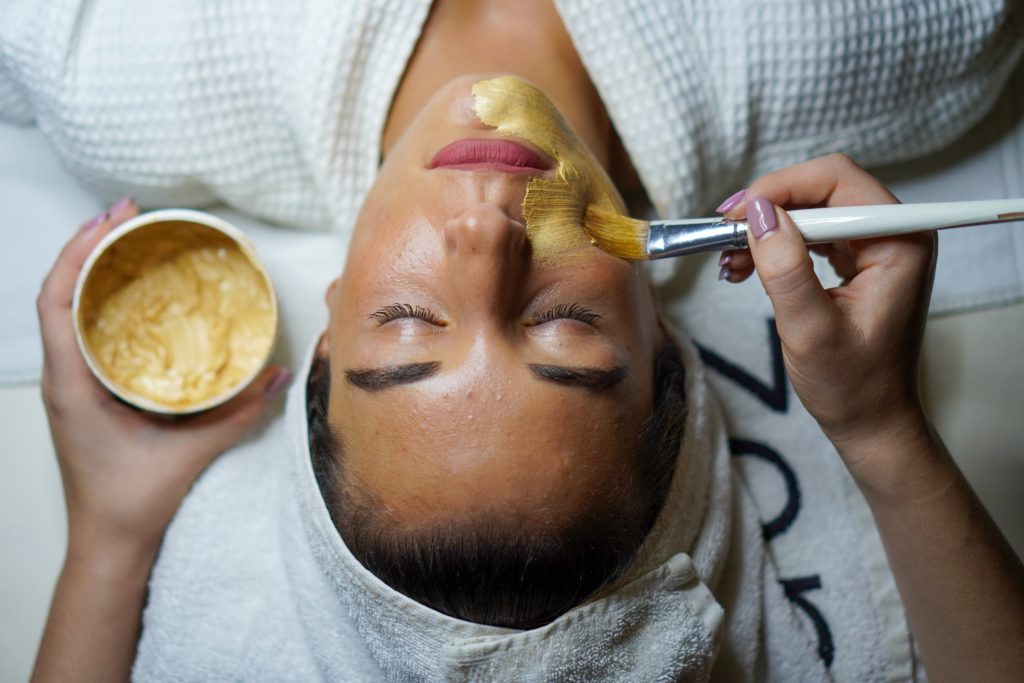Face masks have become an integral part of our daily lives, thanks to the ongoing fight against COVID-19. However, these masks aren’t limited to pandemic use. From protecting healthcare workers to enhancing your skincare routine or even making a style statement, there are diverse types of face masks.
In this comprehensive guide, we’ll delve into the world of face masks beyond COVID-19, uncovering their various types, applications, and how to use them effectively.
Different Types of Face Masks
1. Medical Face Masks
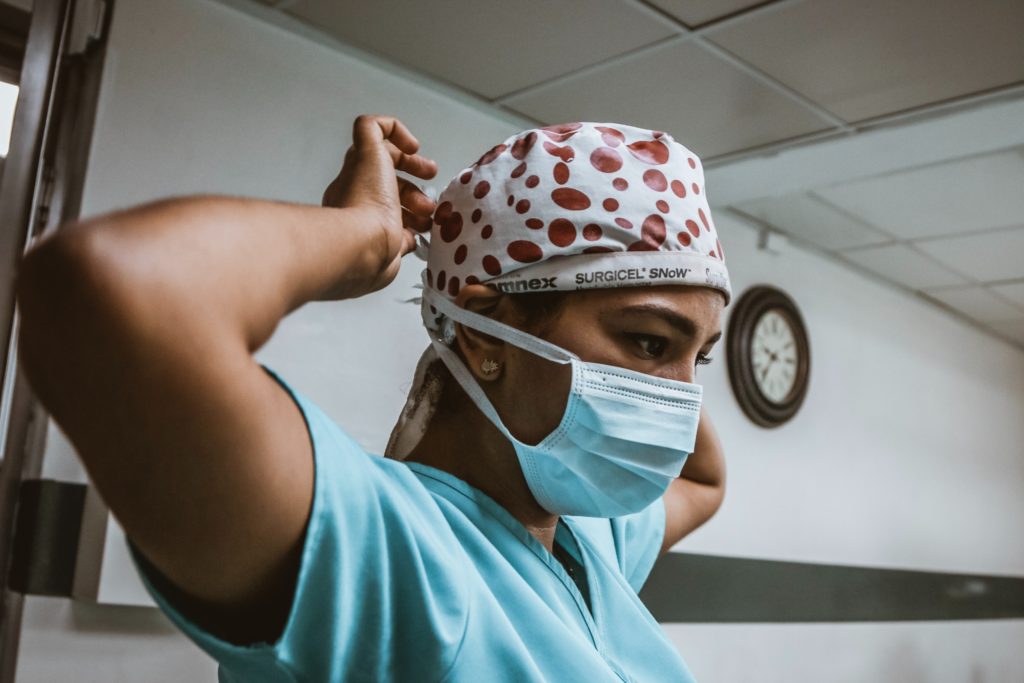
a. Surgical Masks
Surgical masks are disposable, loose-fitting masks used primarily in healthcare settings to protect against bodily fluids and large respiratory droplets. They’re vital for healthcare professionals, patients, and those caring for the sick.
Surgical masks are the quintessential face coverings in healthcare. These disposable, loose-fitting masks are crucial for healthcare professionals, patients, and those tending to the ill. They primarily serve to protect against respiratory droplets and bodily fluids.
b. N95 Respirators
N95 respirators are tight-fitting masks designed to filter out at least 95% of airborne particles. They provide superior protection and are essential in high-risk environments, such as during pandemics.
N95 respirators are a higher-grade mask, offering a tight fit and the ability to filter out a minimum of 95% of airborne particles. They are indispensable in high-risk environments, particularly during pandemics like COVID-19.
c. N99 and N100 Masks
Building on the N95 concept, N99 and N100 masks provide even higher filtration efficiency. They’re used in extremely hazardous conditions, where superior protection is essential.
N99 and N100 masks are an advancement from N95 respirators, providing even higher filtration efficiency. They are used in environments with extreme hazards where top-tier protection is paramount.
2. Respirators for Occupational Use
a. Dust Masks
Dust masks, often with N95 ratings, are intended for protection against non-toxic particulate matter. They’re commonly used in construction, woodworking, and other trades to shield against dust and debris.
Dust masks, typically with N95 ratings, are employed in occupations involving non-toxic particulate matter. Construction workers, woodworkers, and various tradespeople use them to guard against dust and debris.
b. Paint and Chemical Respirators
Respirators for paint and chemicals come in various filter ratings to safeguard against fumes and hazardous particles. These masks are essential for workers exposed to paint, chemicals, and solvents.
Respirators designed for paint and chemicals feature various filter ratings to safeguard against fumes and hazardous particles. They’re indispensable for workers exposed to paint, chemicals, and solvents.
c. Asbestos and Particulate Respirators
Asbestos and particulate respirators are engineered to protect against microscopic particles and hazardous materials, like asbestos fibers. These masks are crucial in construction and asbestos removal.
Asbestos and particulate respirators offer protection against microscopic particles and hazardous materials, including asbestos fibers. They are crucial in construction, asbestos removal, and other high-risk settings.
3. Protective Face Masks for Sports and Outdoor Activities
a. Athletic Masks
Athletic masks are designed for athletes, helping them breathe comfortably while training. They filter pollutants and enable athletes to perform at their best in challenging conditions.
Athletic masks cater to athletes, aiding them in breathing comfortably during training. They filter pollutants and allow athletes to perform at their best, even in challenging conditions.
b. Pollution Masks
Pollution masks are a shield against harmful air pollutants. They are essential in densely populated urban areas and industrial settings to protect against toxic substances in the air.
Pollution masks are a defense against harmful air pollutants. They are indispensable in densely populated urban areas and industrial settings, where toxic substances in the air pose health risks.
c. Winter and Cold-Weather Masks
Winter masks provide warmth and protection from harsh weather conditions. They keep you cozy while engaging in winter sports or simply braving the cold.
Winter masks offer warmth and protection against harsh weather conditions. They keep you cozy while engaging in winter sports or simply venturing out in frigid temperatures.
4. Fashion and Style Masks
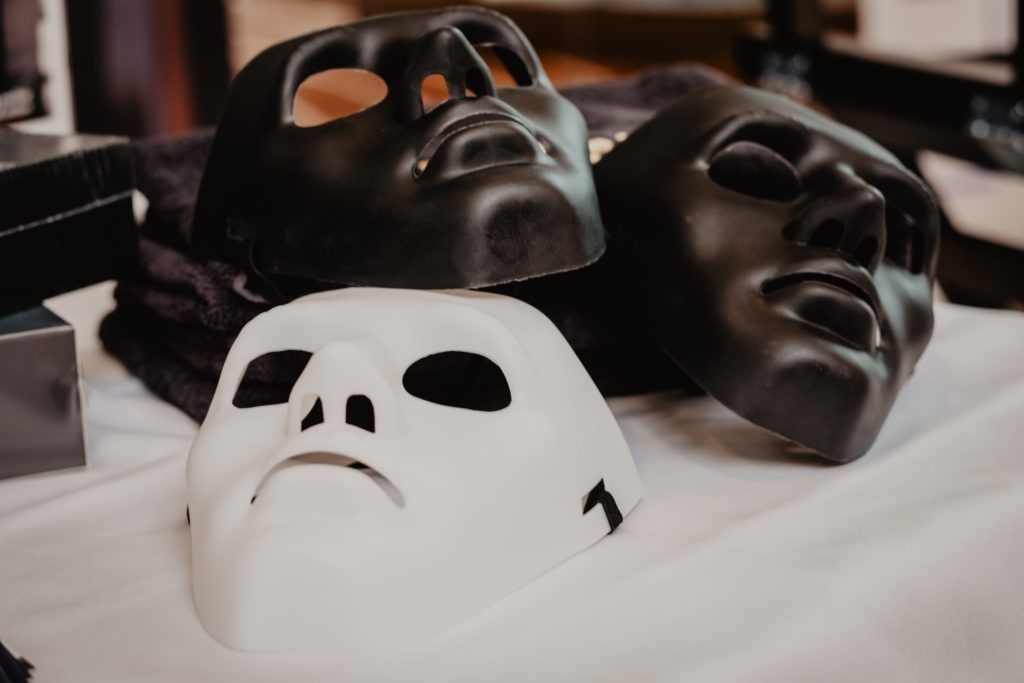
a. Trendy Fabric Masks
Trendy fabric masks are all about style. They come in various designs, colors, and patterns, allowing you to make a fashion statement while staying protected.
Trendy fabric masks are all about style. They are available in a plethora of designs, colors, and patterns, enabling you to make a fashion statement while ensuring your safety.
b. Custom and Designer Masks
Custom and designer masks offer a personalized touch to your face covering. You can create a mask that matches your style or choose from designer collections for a touch of luxury.
Custom and designer masks provide a personalized touch to your face covering. You can create a mask that perfectly matches your style or choose from designer collections for a touch of luxury.
c. Themed and Novelty Masks
Themed and novelty masks allow you to express your interests and passions. Whether you’re a fan of a movie, sports team, or book, there’s likely a themed mask to match.
Themed and novelty masks enable you to express your interests and passions. Whether you’re a fan of a movie, sports team, or book, there’s likely a themed mask that aligns with your enthusiasm.
5. Beauty and Skincare Masks
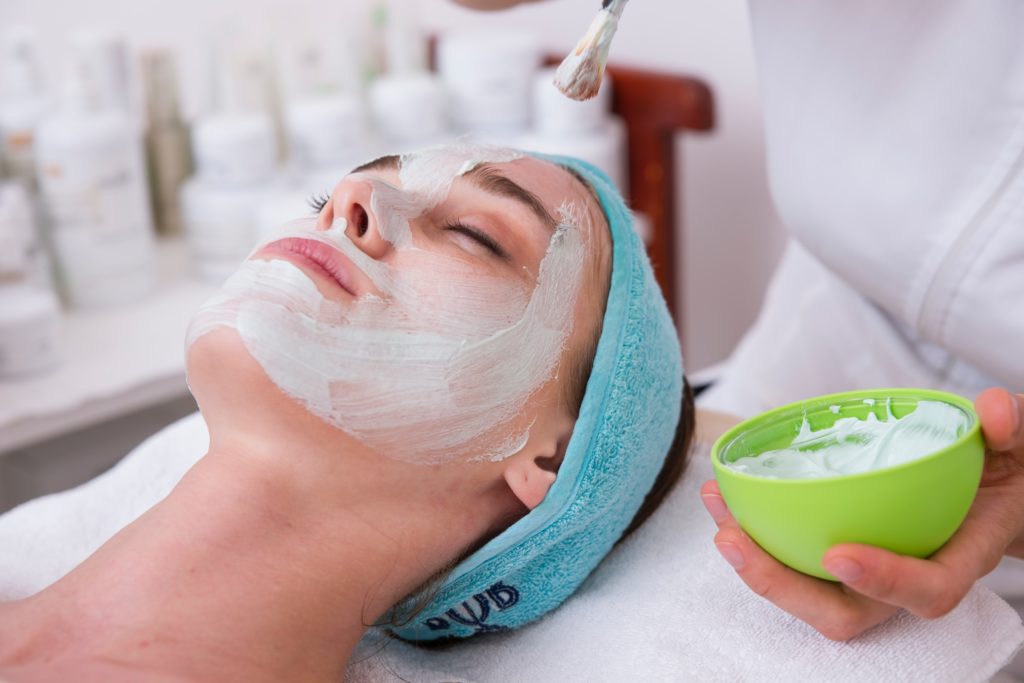
a. Sheet Masks
Sheet masks are skincare wonders. Infused with serums, they hydrate, nourish, and rejuvenate your skin. These face masks are perfect for achieving a radiant complexion.
Sheet masks are skincare wonders infused with serums that hydrate, nourish, and rejuvenate your skin. They’re perfect for achieving a radiant and healthy complexion.
b. Clay Masks
Clay masks are purifying powerhouses. They draw out impurities from your skin, helping to clear pores and leave your face feeling refreshed and revitalized.
Clay masks are purifying powerhouses. They excel at drawing out impurities, clearing pores, and leaving your face refreshed and revitalized.
c. Exfoliating Masks
Exfoliating masks provide a deep cleanse by removing dead skin cells. They leave your skin smooth and glowing, helping to improve overall skin texture.
Exfoliating masks offer a deep cleanse by removing dead skin cells. They leave your skin smooth and glowing, contributing to improved overall skin texture.
6. DIY and Homemade Masks
a. Homemade Fabric Masks
Homemade fabric masks offer a cost-effective and customizable solution for face coverings. You can make them using various materials and patterns to suit your needs.
Homemade fabric masks provide a cost-effective and customizable option for face coverings. You can create them using a variety of materials and patterns to fit your preferences.
b. DIY Skincare Masks
DIY skincare masks are a fun way to pamper your skin at home. Using simple ingredients from your kitchen, you can create masks tailored to your skin’s needs.
DIY skincare masks are a fun way to pamper your skin at home. By using basic ingredients from your kitchen, you can create masks tailored to your skin’s specific needs. These masks are not only effective but also a budget-friendly way to enjoy the benefits of a spa day at home.
Customized Solutions and Creative Options
Customized solutions for face masks allow you to tailor your mask to meet specific requirements. Whether it’s adding extra layers for filtration or incorporating unique features, you have the creative freedom to design a mask that suits your lifestyle.
Customized solutions for face masks give you the flexibility to tailor your mask to meet specific requirements. Whether you need extra layers for enhanced filtration or want to incorporate unique features, you have the creative freedom to design a mask that aligns with your lifestyle.
Safety and Efficacy Considerations
While DIY and homemade masks offer flexibility and cost savings, it’s essential to ensure they meet safety and efficacy standards. Proper materials, construction, and maintenance are vital for their effectiveness.
When creating DIY and homemade masks, safety and efficacy should be a top priority. Using proper materials, constructing the mask correctly, and maintaining it are essential to ensure that the mask effectively serves its intended purpose.
Conclusion
In this comprehensive guide, we’ve explored the world of face masks beyond the scope of COVID-19. From medical masks to protect healthcare workers and patients to respirators for occupational safety, we’ve covered it all. Whether you’re an athlete in need of better training gear, a fashion-forward individual making a style statement, or someone invested in skincare, there’s a mask for you.
Frequently Asked Questions (FAQs)
1. What are the different types of face masks?
There are various types of face masks, including medical masks like surgical masks and N95 respirators, masks for occupational use, protective masks for sports and outdoor activities, fashion and style masks, beauty and skincare masks, and DIY and homemade options.
2. Which is the best face mask?
The best face mask depends on your specific needs. Medical professionals often use N95 respirators for maximum protection, while those engaging in sports may prefer athletic masks. For fashion and style, you have trendy fabric masks, and for skincare, sheet masks are popular.
3. What is the difference between face masks and face coverings?
Face masks are generally more protective and are used in medical and high-risk settings. Face coverings, often made of cloth, provide basic protection and are commonly used for day-to-day activities.
4. How do you wear a different face mask?
The method for wearing a face mask varies based on the type of mask. Always follow manufacturer instructions or guidelines from reliable sources for proper usage.
5. How many times should you wear the same mask?
For disposable masks, they are designed for single use. Reusable masks can be worn multiple times, but regular washing and proper care are essential to maintain their effectiveness.
6. How long can you wear a disposable mask?
Disposable masks are typically designed for single use and should be discarded after a day of use or when they become damp.
7. How long do face masks last?
The lifespan of face masks depends on the type and frequency of use. Disposable masks are for single use, while reusable masks can last for several months with proper care.
8. How many times can you wear a KN95 mask?
KN95 masks are designed for single use, but some can be reused if properly sanitized. However, it’s essential to check the manufacturer’s recommendations.
9. What is the difference between KN95 and N95 masks?
KN95 masks meet Chinese standards, while N95 masks meet U.S. standards. While they have similar filtration efficiency, there may be differences in fit and design.
10. How long does a KN95 mask last?
The longevity of a KN95 mask depends on the frequency of use and the manufacturer’s recommendations. Some can be reused if properly sanitized.
11. When should I use a face mask, morning or night?
The choice of using a face mask in the morning or at night depends on your skincare routine and personal preference. Morning masks can provide a fresh start for the day, while night masks can help with skin rejuvenation during sleep.
